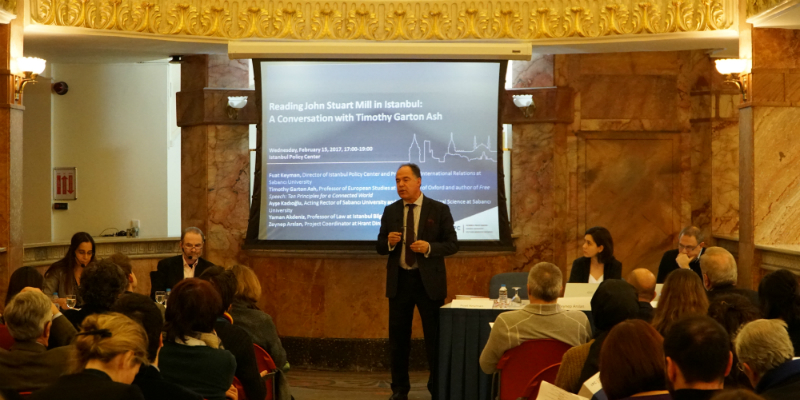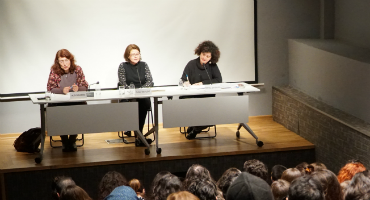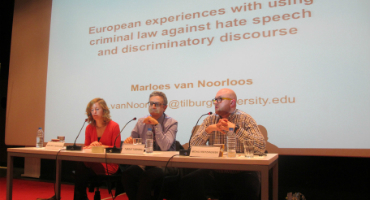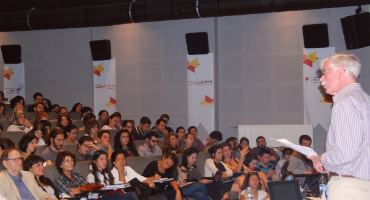Istanbul Policy Center and Asulis Discourse, Dialogue, Democracy Laboratory held a panel titled 'Reading John Stuart Mill in Istanbul: A Conversation with Timothy Garton Ash' on Wednesday, February 15, 2017 at IPC, Minerva Han. In the panel moderated by Fuat Keyman, Timothy Garton Ash shared his latest book, Free Speech: Ten Principles for a Connected World, in company with Ayşe Kadıoğlu’s questions specifically in terms of what he says in his book.
After moderator Fuat Keyman’s opening speech, Ayşe Kadıoğlu asks whether we can have a transcultural debate on free speech in emergency rules we found ourselves. Stating that the distressing situation of academics, journalists and media mainly cause by political atmosphere in Turkey, Garton Ash pointed out that his visit as a gesture of intellectual solidarity. Saying that there are big dogs and cats, Ash named the powerful states as big dogs. He reminded that these powerful states control and censor the internet and noted that China “is the greatest censor state in the history.” Defining Facebook, Google, Amazon and Apple as “big cats”, Ash stated that they “make editorial decisions for the things that people can or cannot see” and pointed out that these editorial decisions are not transparent and accountable.
Speaking after Kadıoğlu and Garton Ash, Yaman Akdeniz, Professor of Law at İstanbul Bilgi University, talked about the attempts of government to control internet in Turkey and the restrictions regarding media freedoms since the coup attempt in July 2016.
The last speaker Zeynep Arslan from Hrant Dink Foundation talked about the Media Watch on Hate Speech Project and ASULIS Discourse, Dialogue, Democracy Laboratory under the roof of the Hrant Dink Foundation. Emphasizing that Asulis Laboratory is a result of a significant accumulation of information and data on hate speech and discriminatory discours under the light of previous experiences, Arslan stated that the project aims to carry out activities on discrimination and discriminatory discourse; explore their reasons; analyze the political, social, economic, cultural, and similar effects of the discourse on the society.




